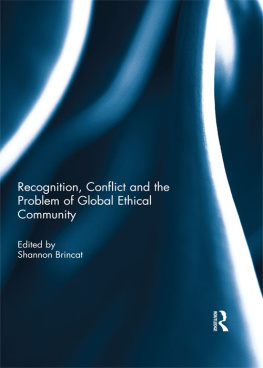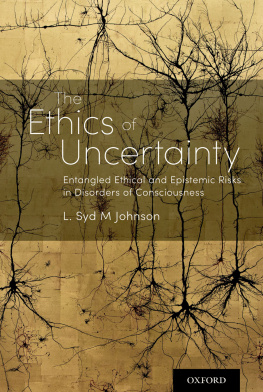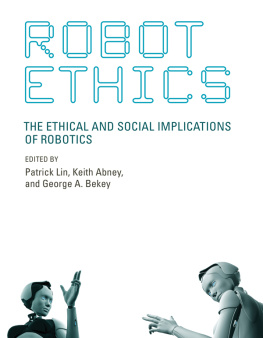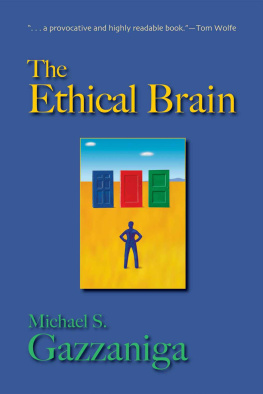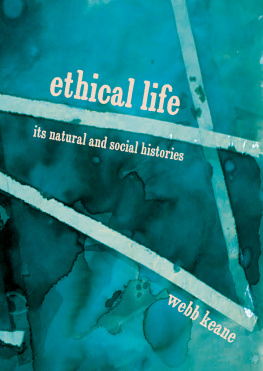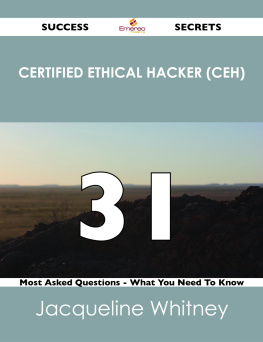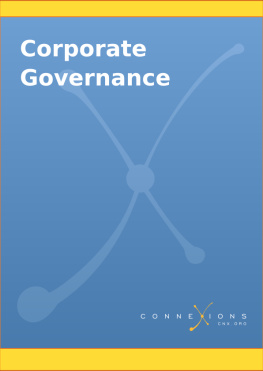Michael Lambek is professor of anthropology and a Canada Research Chair at the University of Toronto Scarborough. He is the author of several books, most recently The Weight of the Past, and editor or coeditor of several more, including Ordinary Ethics and A Companion to the Anthropology of Religion.
The University of Chicago Press, Chicago 60637
The University of Chicago Press, Ltd., London
2015 by The University of Chicago
All rights reserved. Published 2015.
Printed in the United States of America
24 23 22 21 20 19 18 17 16 15 1 2 3 4 5
ISBN-13: 978-0-226-29210-6 (cloth)
ISBN-13: 978-0-226-29224-3 (paper)
ISBN-13: 978-0-226-29238-0 (e-book)
DOI: 10.7208/chicago/9780226292380.001.0001
Library of Congress Cataloging-in-Publication Data
Lambek, Michael, author.
The ethical condition : essays on action, person, and value / Michael Lambek.
pages cm
Includes bibliographical references and index.
ISBN 978-0-226-29210-6 (cloth : alkaline paper)ISBN 978-0-226-29224-3 (paperback : alkaline paper)ISBN 978-0-226-29238-0 (ebook) 1. EthicsAnthropological aspects. I. Title.
BJ52.L36 2015
303.3'72dc23
2015006388
This paper meets the requirements of ANSI/NISO Z39.481992 (Permanence of Paper).
This volume contains a selection of my essays that attend ethnographically to ethical life, to the action entailed in becoming and being a person, and to the relationship of acts and persons to value. The essays address central questions of social theory from an assumption and by means of a demonstration of the pervasiveness of what I elaborate as the ethical. The ethical in my vocabulary is not an object, not a distinct compartment of the social, so much as a force, dimension, or quality of human existence. To attend to the ethical is to look at social life in a certain way and to put it under a certain kind of description. Ignoring the ethical leaves ethnographic description thin and risks caricature in place of social analysis.
Ethics as an intellectual pursuit concerns reflection on how to live. This must include reflection on how we live in relation to others (to past and future generations, contemporaries and consociates, humans and nonhumans), how we live in relation to our language and our conventions, and how we live in relation to our individual voices and to our particular selves. Some thinkers consider the (fully) human life a hard-won achievement or even an unreachable goal. Other thinkers want to examine how it is that we do in fact live a human life, that the life we live is already human. Thus ethics may be seen as attending primarily to the realm of the ideal or to the realm of the real, to ends and goals or to means and everyday life. If philosophers and proponents of religion sometimes prefer to explore the ideal and the extraordinary, it is the province of anthropologists to consider the real and the ordinary. What is ordinary life, and in what sense does it fulfill the human? If ethics qua intellectual pursuit concerns reflection on how to live a human life, ethics qua practical activity is the actual living of it. How does life come to be so and what do we need in order to see it in this way?
These observations contain within their provincedo not disregardtwo additional and fundamental observations. First, for many people part of leading a human life is the effort to transcend it, to posit and seek ideals, certainties, or mysteries beyond the ordinary (efforts that are also the province of anthropological investigation); and, second, that ordinary life also contains within it much that, from certain mundane definitions of the ethical, could be readily described as non-ethical or unethical.
Ethics is currently a significant topic of conversation in anthropology, a conversation to which I have contributed. Yet for reasons that will become clear, I do not see ethics as a distinct compartment of social life and hence am skeptical about the development of ethics as a separate domain of investigation or a subfield. Ethics is not only an explicit province of intellectual activity but also a tacit dimension of practice. My interest lies in how attention to the ethical enriches our understanding of practice, of acts and action, of cultural worlds and worlding, of social value, of personhood and individual lives, and more generally, of human existenceof human being. My position, in a single phrase, is as follows: The human condition is an ethical condition. In , the newly written introduction to this set of essays, published originally over a thirty-year span between 1983 and 2013, I intend to build a context for this bald assertion.
The goal is not to discover ethics (or morality) as one (let alone two) discrete object or objective manifestation that could be compared, classified, and tracked from society to society but to understand the ethical qualities or dimensions of life. I take ethics as pertaining to the intentions, qualifications, and consequences of human speech and action, more specifically the entailments of acts in relation to time, person, and existence. What if we took domains of social life or anthropological inquiry, like kinship or religion and viewed them through the lens of action? That would be partly to examine the stream of practice and the way that discrete acts, some called ritual, arise within it and produce consequences for it. These consequences occur, in the first instance, in the moral realm, not the material. They change the descriptions under which people live, directly transforming not behavior but the criteria through which behavior is understood. Understanding the human situationwhat we have done, who we are, where we are heading, what these things mean for us and for othersis one way to describe the ethical. Ethics in this sense is to be examined less prescriptively than hermeneutically.
Anthropology and Philosophy
If, as some authors argue, ethics has been an implicit topic of anthropology all along, that is because it is embedded in the best accounts of other peoples lives, ethnography that observes the richness, complexity, and ambiguity of experience; the directions people take; their engagement in their lives, projects, relationships, and communities; and how they surmount or fail to surmount obstacles or seek newer horizons. To take two eminent but now neglected examples, consider the essays of Meyer Fortes on how West Africans understand varieties of moral luck within their world or the account by Kenelm Burridge of how Melanesians imagine transcending the moral limits of their world (Fortes 1983, 1987a; Burridge 1969, 1970). But the implicit was rarely made explicit. It was long a truism of the anthropology in which I was trained that we should observe the difference between what people say they do and what they actually doyet the assumption behind the instruction was fairly cynical; the question that never came up was how people themselves actually live that gap or what it means to live in a world with ideals, rules, or criteria that cannot be met completely or consistently. Anthropologists also wrote a great deal about what symbols mean but relatively little about what people mean by what they say and do. How do others (or they themselves) know that they really


